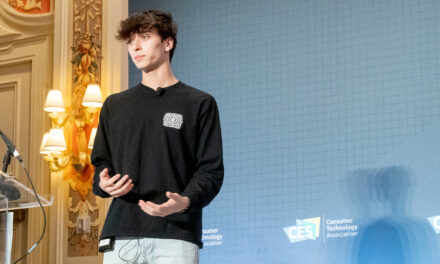Company: Philo
Philo is a streaming television service that offers subscribers a package of 58 top-rated television channels for $20. The company says you can watch live, save unlimited shows to your devices to watch later, or browse a huge library of on-demand content. Philo is available on all your favorite devices—including Apple and Android phones and tablets, Apple TV, Roku, and Amazon Fire—and on the web. To keep costs down, Philo eschews sports and broadcast channels, which typically drive up the costs of over-the-top (OTT) offerings.
Business Challenge
Philo launched its national streaming service in November 2017. Like any new company, growth is a big challenge. Getting the word out and converting potential customers into subscribers are especially important for this subscription-based OTT service. Philo knew influencers were going to be a big factor in acquiring new users, but as an analytics-focused company, it wanted to be sure it was getting the best bang for its buck. How could Philo be sure it was targeting the right influencers?
Vendor of Choice: BEN (Branded Entertainment Network)
BEN has been connecting global brands to consumers through the power of popular entertainment for decades. Founded in 1989, the Los Angeles-based company specializes in product placement, influencer marketing, and licensing. And in the digital age, BEN has become AI-driven, using 30 years of data to match the right brands and products with the right influencer, movie, TV show, video game, etc. BEN says it has access to more than 500,000 global influencers, and its predictive analytics can help match brands with exactly the right influencers.
The Problem In-Depth
“If you build it, they will come.” Business owners know that what that voice so famously told Kevin Costner in Field of Dreams isn’t necessarily true. Even the best product doesn’t stand a chance if you don’t spread the word about it. After its 2017 launch, Philo was facing a typical challenge for a new business: customer acquisition. As a subscription-based business, growth was especially important. “Growth was a major objective,” says Nii Mantse Addy, head of marketing at Philo.
Philo offers potential customers the ability to try out its service without entering a credit card number. Simply enter your phone number, and you can get a free 7-day trial. “We thought that would work well in the digital sphere,” says Addy.
“Influencers, as a category, are much more compelling,” Addy states. He knew this was a channel Philo wanted to try out. But the company isn’t satisfied with a spray-and-pray model in any aspect of its business. It is constantly testing new channels, packages, and ways of getting people into the funnel and relies heavily on analytics to know what’s working and what’s not. So if Philo was going to work with influencers, the company wanted the same kind of numbers-driven accountability.
The Solution
It was a similar analytical focus that drew Addy’s marketing team to BEN. He had worked with BEN at a previous job and was familiar with how the company functions. Ricky Ray Butler, CEO of BEN, calls his company “an AI company that works in entertainment”—and it was exactly that data-driven attitude that made it a good fit for Philo.
According to BEN, its “AI solution is also being used to keep an eye out for influencer fraud, ensuring that the content aligns with a brand’s values and guidelines and meets all regulations. With millions of pieces of influencer content uploaded every day, it’s almost impossible for humans to get the full scope of the landscape. AI has immense advantages that allow it to not just process the volume of content available today, but also to find patterns within that content—from key indicators of influencer fraud to predictions of what will be the most successful for a brand.”
“Entertainment is the future of marketing,” says Butler. “Marketing is going to be inside content, not outside.” In other words, Butler predicts that marketing is going to be less and less about traditional advertising like commercials, print ads, or even digital ads—and more about product placement, influencers, etc.
“Influencers are TV for the up and coming generations,” according to Butler. Of course, anyone with kids already knows that YouTube celebrities hold way more sway with Gen Z than even the biggest television star. “Influencers are mini-creative agencies,” says Addy. Choosing the right creative agency is a hard enough task—now imagine doing it dozens or even hundreds of times. BEN’s 30 years of data was the solution to that particular problem.
Here’s how it works with BEN. The company spends time getting to know its clients—what’s worked for them in the past and what hasn’t. BEN applies the generalized data it’s been collecting during decades of doing business and customizes an algorithm. Through machine learning, the algorithm gets smarter as time goes by, and each month, performance—at least in theory—gets stronger.
“Putting together a campaign for Philo that was going to guarantee awareness or views wasn’t enough. We needed to figure out ways to increase sales and revenue,” states Butler. In order to do that, BEN looks deeper than the usual datapoints. Butler says, “We don’t just look at public data; we actually have our machines looking at and scanning the content … to determine if there are any patterns or nuances to look for.”
The Outcome
One pattern in particular emerged—one that Philo didn’t necessarily anticipate. Mommy vloggers were a “demographic that’s very effective even though it wasn’t [Philo’s] highest priority to target.” In this case, it wasn’t just about making matches with influencers that seemed like a good fit; BEN concentrated on finding influencers who would perform well and drive signups for Philo.
“Most of this is all video based,” says Addy. Coupon codes were given out by the influencers. They were able to determine what types of content on Philo convert the most people and test the best places to send prospects within the Philo product. Addy also says the 10-second signup was “really impactful.”
Through BEN’s AI, Philo increased the click-through rate of its influencer marketing campaigns by 172% and improved its subscription conversion rate by 10 times. To achieve this, Addy says, “We had to be a little bit more forthcoming with some of the data on the back end.” The more granular the data that BEN has access to, the better its AI can do its job.
Addy says that influencer marketing will be a big part of its marketing moving forward. “I don’t know if that’s a widely held perspective,” he says. “It’s getting harder and harder to cut through the noise.” But BEN helped Philo cut through the noise and grow its business.







